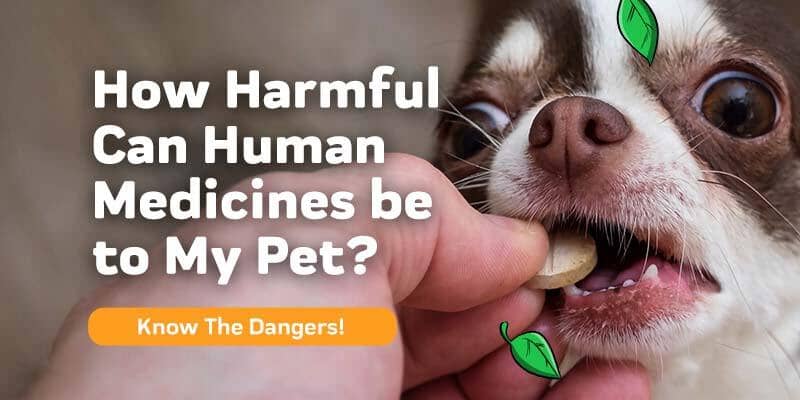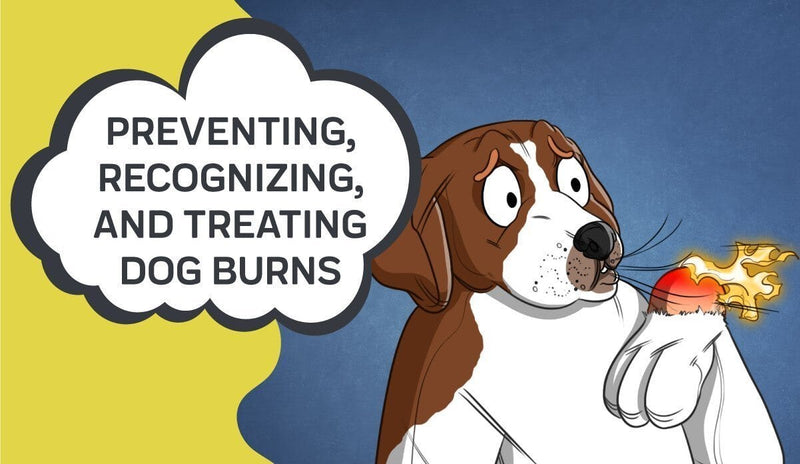- Signs Your Pet May Have Worms
- The Most Common Worms to Watch Out For
- How to Deworm Your Dog
- How Old Should My Pet Be For Deworming?
- How to Prevent Worms in the Future
- Conclusion
Due to their curiosity and tendency to smell and lick everything they come into contact with, dogs are a very convenient hosts for worms and other parasites. As infestations will severely impact your dog’s health, you want to seek treatment regularly to avoid bad symptoms.
Because dogs (and especially puppies) are prone to worms, it is essential to learn how to deworm if worming happens to your dog. Several kinds of worms can get into your pet’s system, and some more dangerous than others.
Worming can even transfer from dogs to humans. Learn how to deworm your pet today to protect your dog and family's future.
Signs Your Pet May Have Worms
Your pet may have worms and need to be treated if they display one or more of the following:
- Diarrhea
- Bloody stool
- Weight loss
- Vomiting
- A distended abdomen
- Biting under the tail
- Anemia
- Coughing
- Shortness of breath
Sometimes worming symptoms only arise when the parasite's presence is quite high, so it is best to check for worms regularly just in case.
The Most Common Worms to Watch Out For
Some of the worms that puppies and adult dogs get include:

- Roundworms – as the name states, these are round-shaped and are prevalent in pups.
- Whipworms – a thread-like pest that targets the large intestine and sucks blood. These cause anemia and can be tough to detect and treat.
- Tapeworms – a segmented parasite caused by the ingesting of fleas and even vermin.
- Coccidia – typically found in young pups.
- Hookworms – thin and small, these attach themselves to the intestinal lining, sucking blood. It can make pups extremely anemic or even cause death.
- Heartworms are dangerous pests carried by mosquitoes and take up in the lungs, heart, and blood vessels. Blood work, X-rays, and in-office treatment is required to eradicate them.
The right treatment will be necessary to target these specific pests.
How to Deworm Your Dog
Take Your Pup to the Vet
You should always talk to your veterinarian or take your dog in for a consultation before you embark on a program. The vet will do an overall health check, but also take a stool sample.
The vet's stool analysis checks if there are any pests in your pet’s intestines. The sample will be examined under the microscope.
Typically, a pest check should happen annually for adult dogs, and up to four times a year for young animals. Medicating for pests should happen as per your vet’s guidance.
After doing the stool sample analysis, your vet will see if there are any pests in the dog’s system. The vet can recommend or prescribe the right medication or course of action once this is established.
Buy Over the Counter Medication
There are many over-the-counter deworming drugs you can get to administer at home, but this may be a waste of time. Some treatments only target specific types of parasites, so if you do not know what pests your dog has, the program may not be valid.
Your vet will recommend an appropriate treatment, even if you prefer to do it yourself at home. A vet will administer or recommend an oral or injected pest treatment, depending on stool sample findings. However, you can't have access to this treatment unless you make an appointment.
Some dog breeds are sensitive to certain ingredients in medications. Your vet will advise you about the best brands to use.
As some parasites are not so easy to detect in stool samples, your vet may recommend preventative treatment.
Use Natural Remedies
You can also try deworming with natural means. A few foods in small quantities will work for deworming, which include:
- Carrots
- Pumpkin seeds
- Coconut
- Turmeric
- Chamomile
Taking the natural route does not mean you must not get your vet to do checkups, however. It is merely a sufficient supportive routine to follow.
How Old Should My Pet Be For Deworming?
Experts suggest that puppies should be deworming as early as two to three weeks old, as they are especially prone to worms. Pups can be born with these pests, or get them by drinking milk from their mother, and so will need to be treated.
As this is very young, it is best to get advice from your vet about what brand of product to use or take your puppy in for your vet to treat professionally for parasites.
How to Prevent Worms in the Future
The best way to make sure your pet does not get worms in the future is to learn preventative techniques. Keeping your home and yard clean go a long way, but here's an excellent worm prevention checklist to live by:
- Vet-check for pests at least once per year. Veterinarians recommend doing an in-office stool sample to check for parasites once a year for adult dogs and two to four times for pups.
- Keep your yard free of dog feces. Eliminate any chance that worms will be attracted to your yard by keeping it nice and clean.
- Control household pests. Other pests like fleas and mosquitoes can carry worms, so make sure to take preventative measures to minimize them in your home. Dogs can even get pests from eating rats, so control vermin as well.
- Wash your hands after playing with your pet. Some types of worms can move over to people, and you might not realize you're increasing the risk of infestation.
Conclusion
Deworming is a straightforward treatment, so don't be scared! It's a common problem for dogs. The important thing is to take your pet in for treatment right away and stay ahead of the problem.
By checking for worming and getting rid of these pests, you will minimize the discomfort and health problems that worming causes.
Always consult with your vet for the best and most harmless ways to get rid of worming!
Sources:
6 Natural Ways to Treat and Prevent WormsWhat can you expect after deworming your dog?
What Dog Deworming Means for Dog Lovers















